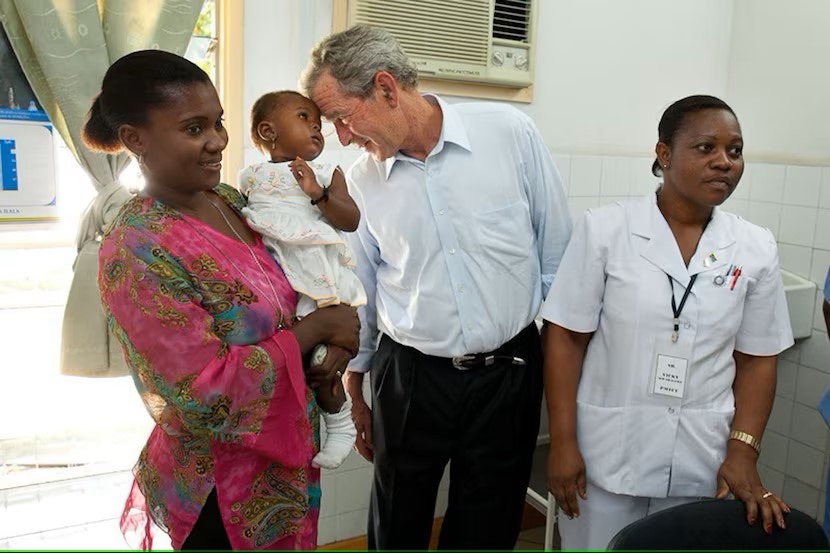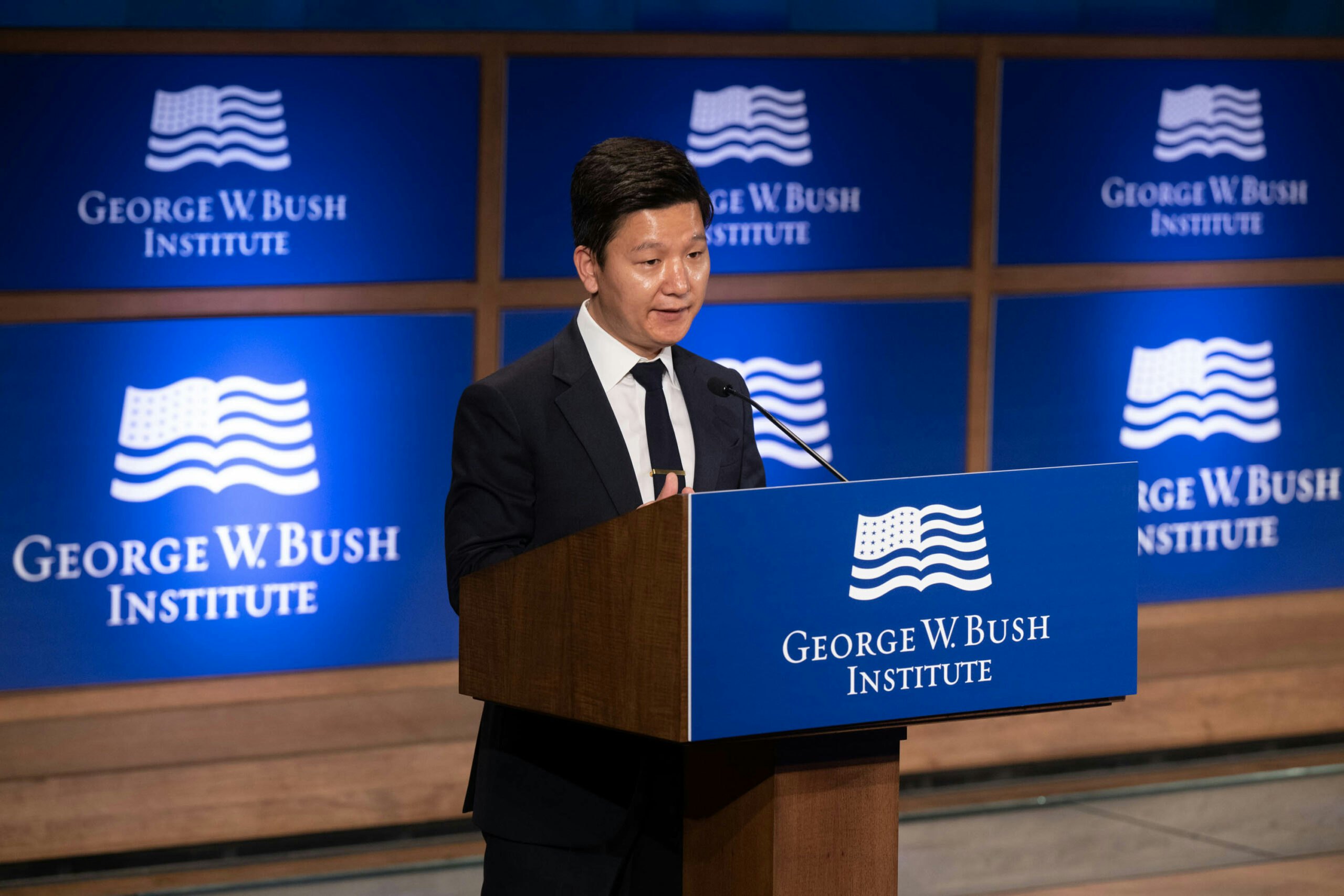The most important global issue to watch in 2018 may be whether the New Year brings resolution and harmony – or further fracturing of the world’s largest trading bloc and political community.
Geopolitical tensions across the European Union are cresting as 2017 comes to a close. The most important global issue to watch in 2018 may be whether the New Year brings resolution and harmony – or further fracturing of the world’s largest trading bloc and political community.
The tension is largely being driven by the rise of populist nationalism that is now threatening the political character of Europe, long the center of gravity of the democratic community of nations. As Peter Wehner and I wrote in the Call-to-Action Paper cited by President Bush in his October 19 speech in New York City, The Spirit of Liberty; At Home, In the World,
Europe, in particular, is in deep crisis. While “the West” is more about values and institutions than it is about geography, there is no democratic “West” without Western Europe. … [Yet] five years after the European Union was awarded the Nobel Prize for its historic achievement of banishing war from a war-torn continent, the EU and its leaders seem to have lost their sense of direction.
On the EU’s western front, London’s negotiations with Brussels over the terms of the United Kingdom’s controversial departure from the EU remain tenuous. Growing numbers of Britons are calling for a new referendum on Brexit, while Prime Minister Theresa May seeks to minimize the damage to Britain that separation will inevitably bring to the UK.
On the other side of the continent, Poland, Hungary, and the Czech Republic are not only back-sliding in their democratic performance, but are also engaged in multiple battles with the EU that threaten European cohesion and stability.
All three nations have balked at accepting their share of the millions of refugees in Europe who have fled conflicts in the Middle East, central Asia and North Africa. Whether the EU can compel individual countries to accept refugees is a flashpoint in national politics across the continent. And it has fueled the rise of anti-immigrant, anti-European parties and movements across the continent.
In addition, Hungary has enacted at least two new laws that European institutions say violate democratic standards. A law intended to shutter the Central European University is widely seen as an infringement on academic freedom. The other is a Russian-inspired measure to demonize and obstruct non-governmental watchdog organizations that have been critical of the Budapest government’s embrace of authoritarianism.
The latest flash point is Poland. On December 20, President Andrzej Duda signed two laws that effectively bring the country’s judiciary under the political control of the ruling party. These are very slightly modified from the versions Mr. Duda vetoed in July, a move that gave hope that he would resist the politicization of the judiciary that had animated widespread protests across Poland and across Europe.
On the same day, the European Commission announced that it would be launching Article 7 proceedings that could lead Poland to lose its right to vote in EU institutions. Launching this “nuclear option” requires a four-fifths vote in the European Council, a threshold observers are confident will be achieved — even if Hungary, the Czech Republic, and Slovakia side with Poland, as many expect.
All the major European institutions, and political players are aligned in this effort to pressure or punish Poland. The European Council, the European Parliament and major EU countries are expected to support the Commission’s effort to take action. French President Emmanuel Macron and German Chancellor Angela Merkel also said they would support the Commission if it recommended sanctions against Warsaw.
Whether this united front will persuade the government in Warsaw to alter its course is unclear. The government’s initial response was to ignore the threat and move forward. But Poland risks losing more than just goodwill in Brussels.
As Jan Cienski reports in the European edition of Politico,
Poland is the largest overall beneficiary of EU cash — set to receive about €100 billion in structural, agricultural and other funds during the current seven-year budget ending in 2020. But there is increasing disquiet in parts of Western Europe about sending so much money to a country that violates the EU’s norms.
Perhaps for this reason, Poland has recently adopted a more measured line of rhetoric in its dispute with Brussels.
Meanwhile, in nearby Romania, President Klaus Iohannis has warned his political rivals who control the legislature that proposed laws to bring the judiciary under political control may lead to a similar result – marginalization from mainstream Europe and another Article 7 proceeding.
The cracks in the edifice of European democracy and integration appear to be multiplying as the year draws to a close. Happy New Year, indeed.
Thomas Melia is a Human Freedom Initiative Fellow at the George W. Bush Institute




























